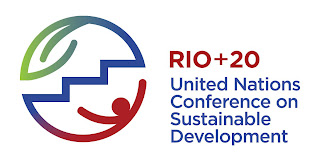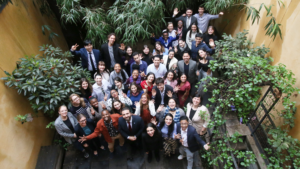The Rio+20 Conference on sustainable development is full of unfulfilled potential. The thought of the world coming together to talk about how we as humans can respect each other and our natural environment by promoting the three pillars of sustainable development outlined in the Johannesburg plan of action is inspiring and exciting. Yes! Let’s think of the future, so that our children’s children can live in a world with a healthy, happy, sustainable populations living in harmony with nature. Unfortunately, that world of the future, if it happens, will not be a product of this conference and the document that has come from it.

The problem is one of contradictions. One might hope that this conference and document would be all positives, a place where our combined human experience could come together for the benefit of all. Such a goal has been undercut by time wasted promoting hidden agendas from social interest groups and some countries’ delegations. While there are lots of positives from this conference, including the very important commitment by multiple countries to maintain the right to life of the human person, there are also many weaknesses.
The Rio+20 conference on sustainable development should focus on the three pillars of sustainable development; social, economic and environmental. This conference can be a good thing for all of us, but solving all of humanity’s problems in two weeks is not possible. Consequently, we have to be selective regarding what we negotiate and add to the document. I met a man at one of the events here who said something very enlightened about this conference: “All is nothing. When more and more gets added to the negotiations, less and less is done about each individual topic; adding more problems to the document means less time spent on the actual topics of the conference.”
Agendas that have little or nothing to do with sustainable development have snuck their way into the conference and become central to the negotiations. First among these is the focus on the promotion of the reproductive rights agenda. Countless hours have been spent talking about access to abortion and contraceptives as an international human right. The conference should instead be focused on a person centered approach to achieving the three pillars of the Johannesburg platform. Rather than the continuous push to make abortion and contraception human rights, attention should be focused on the needs and solutions that we can and should provide to the most poor and vulnerable.
I am staying near a favella while in Rio. I have had the wonderful chance to see that many good NGOs are spending their resources properly to fix the problems people living in the favellas encounter, such as access to affordable housing, and options for transportation to areas of employment. Negotiations are not addressing important topics such as affordable housing, improved transportation, clean drinking water, preservation of natural habitats, among others. Instead we have had this reoccurring agenda of reproductive rights, being inclusive of the “international human right” to contraceptives and abortion. The reproductive rights agenda has nothing to do with sustainable environmental, economic or social development.
Talk in the negotiations should revolve around the central topics and only those; respect for the human person in harmony with their natural world and as stewards and caretakers of nature. If negotiations focus on good ideas and limit their content to relevant material, much good can come from this conference and conferences in the future. I quote the World Youth Alliance, a group that is full of good ideas: “Sustainable development can be achieved only through a person-centered approach to each of its social, economic, and environmental pillars. Upholding the dignity of the person must be the primary goal of sustainable development and the means by which we create a sustainable world.”
Peter
Intern
Canada







